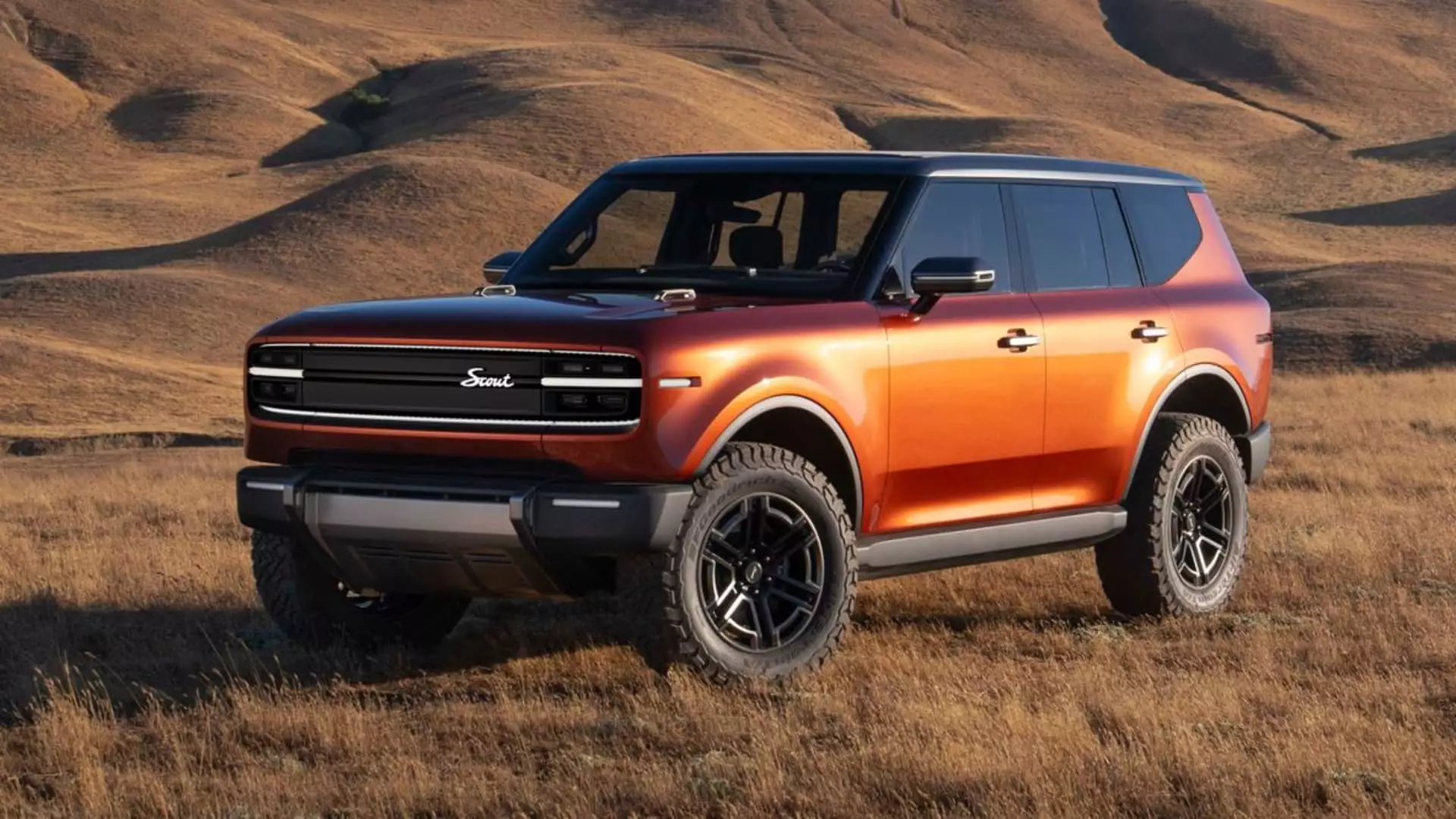Scout Motors, a revival of the once-renowned American vehicle brand originally active from 1961 to 1980, is taking bold strides into the electric vehicle (EV) market. Sponsored by Volkswagen, Scout has unveiled its inaugural lineup of electric vehicles, which includes not just fully electric models but also a new category known as extended-range electric vehicles (EREVs). The decision to embrace this hybrid model emerges from the realization that the road to widespread electric vehicle adoption may be slower than initially anticipated.
Scout’s strategy marks a significant shift in not only its operational philosophy but also in the broader automotive industry’s approach to electrification. CEO Scott Keogh explains that while the brand will remain rooted in electrification, the introduction of EREVs will serve as a “backup plan” to cushion against market volatility. The EREVs will combine the benefits of electric motors and combustion engines, thereby enhancing the versatility and appeal of Scout’s vehicle offerings.
Extended-range electric vehicles (EREVs) are designed to enhance consumer confidence in electric mobility by providing a robust fallback option. Unlike traditional electric vehicles that rely solely on battery power, EREVs incorporate a combustion engine that functions as a generator when the battery’s range is depleted. This innovative design aims to meet the needs of consumers hesitant about fully committing to an electric-only experience.
The adaptability offered by EREVs could prove crucial in a marketplace characterized by rapid changes and consumer hesitance. During an interview, Keogh expressed confidence in the long-term prospects of electrification. By offering EREVs, Scout is effectively introducing customers to electric technology while ensuring they have a reliable alternative, ultimately making the transition to full electrification more palatable.
Strategically, Scout aims to target specific niches within the U.S. market that are rich in profitability. The company is focusing on producing a full-size pickup truck and a large SUV, which together represent approximately 40% of the U.S. automotive sales landscape. Keogh projects that Scout plans to achieve operational profitability within the first year following vehicle production—a noteworthy ambition, especially considering the financial challenges faced by other recent EV startups like Rivian and Lucid.
These newer companies have struggled, often losing substantial amounts per vehicle sold, a situation that raises the stakes for Scout as they prepare to enter the market. With a state-of-the-art plant under construction in South Carolina, set to produce 200,000 vehicles annually, Scout’s ambitious strategy highlights a commitment to overcoming common hurdles in EV production.
Scout intends to differentiate itself not only with its product offerings but also with its sales strategy. Unlike traditional manufacturers, Scout plans to sell directly to consumers, a model that could streamline operations and potentially enhance profitability. This approach may appeal to a segment of consumers looking for a more personalized purchasing experience, aligning well with the brand’s image as an innovative newcomer.
Both vehicles—the Traveler SUV and the Terra pickup truck—are expected to be priced in the $50,000 to $60,000 range. The pricing for the EREVs has not been definitively established but is likely to align closely with the all-electric models, making them competitive in a crowded market.
With cutting-edge technology being a cornerstone of North American EVs, Scout’s designs are forward-thinking. The vehicles will feature advanced charging capabilities, including bi-directional charging that positions them as generators when needed. This capability reflects the broader trend of vehicles as integral parts of the energy ecosystem.
The new models are designed with characteristics reminiscent of classic Scout vehicles but are updated with modern aesthetics and tech-friendly interiors complete with expansive displays and premium materials. These design choices are essential for attracting consumers who prioritize not just performance but a stylish, comfortable ride.
As Scout prepares for its entry into the electric pickup market, it faces the dual challenge of differentiating itself in a growing but volatile industry. The electric vehicle sector is evolving rapidly, and while established players like Ford and GM are ramping up their offerings, Scout aims to find its unique value proposition amidst competition from both traditional and new automotive firms.
Keogh acknowledges the critical nature of establishing a brand appeal that resonates with consumers. Scout’s vision includes future product expansions, hinting at a willingness to explore smaller vehicles if market conditions prove favorable.
Scout Motors’ emergence as a challenger in the EV space showcases a unique blend of heritage and innovation. With a clear market focus and a versatile product line, Scout is poised to navigate the complexities of the automotive industry while championing the electrification movement.

